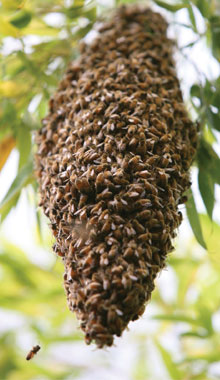Worcester Beekeepers
Welcome to Worcester Beekeepers
Apiary Visit
Did you know?

-
There are 25,000 known species of bee of which 250 different species live in the UK.
-
90% of the bees that reside in the UK are classed as solitary bees.
-
The queen bee is unable to care for herself. She is tended to by other bees that follow, groom and feed her, and even carry away her waste.
-
The queen’s sole role in the colony is to lay eggs, at her peak she can lay up to 2,000 per day. She can live for one to three years.
-
Worker honeybees live four to six weeks during the peak season.
-
Number of days from egg to emerging bee: queen 16, worker 21 and drone 24.
-
A honey bee will die once it has stung. The bee’s stinger which carries barbs hook into its victim and is ripped out of the bee along with the poison sac – the bee then hemorrhages to death.
-
Honey bees communicate with each other by performing a waggle dance. This dance tells the other bees where to forage for food.
-
Honey is the only natural food that does not spoil, as long as it is kept airtight.
-
Australia is the only continent free of the Varroa destructor mite.
-
Honeybees are herbivorous.
-
A healthy thriving hive can contain as many as 20,000 to 50,000 honeybees, most of which will be workers.
-
The queen is the largest bee in the hive, easily identified by her elongated body.